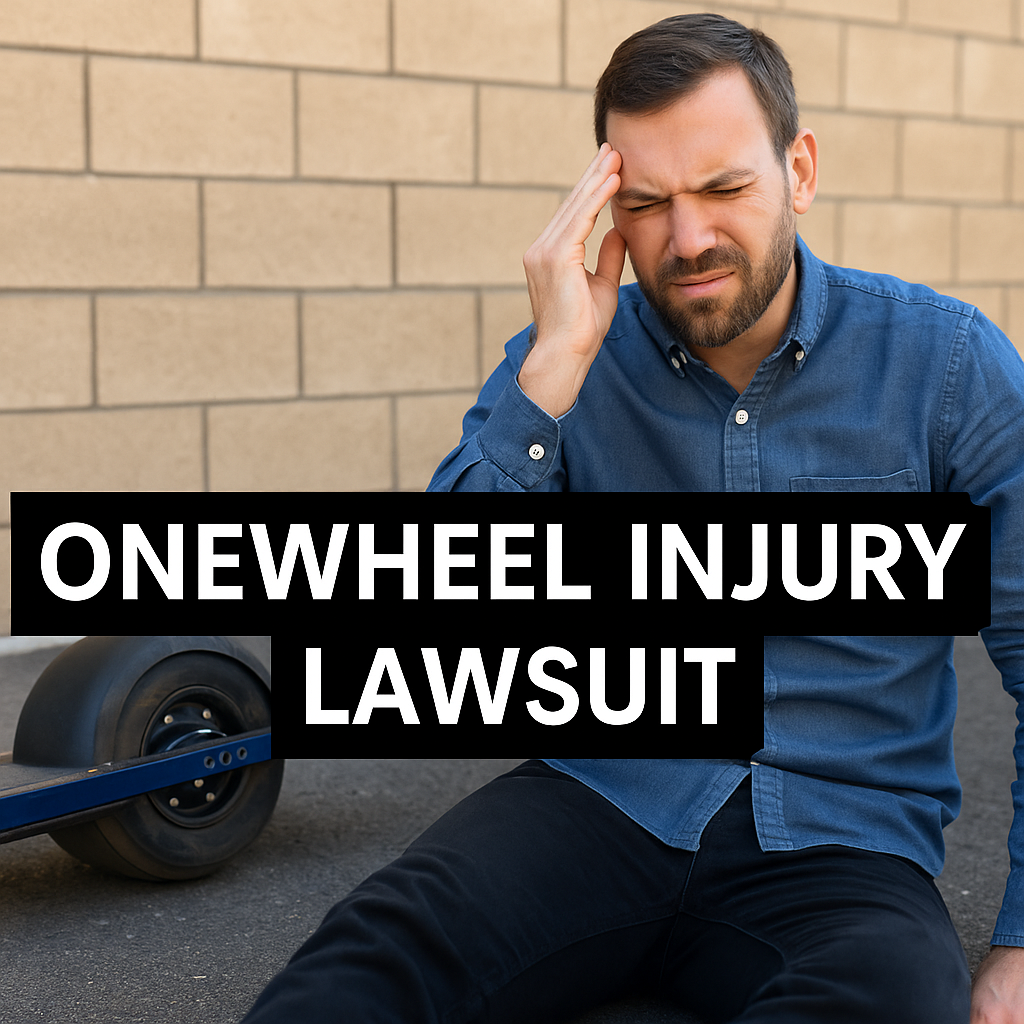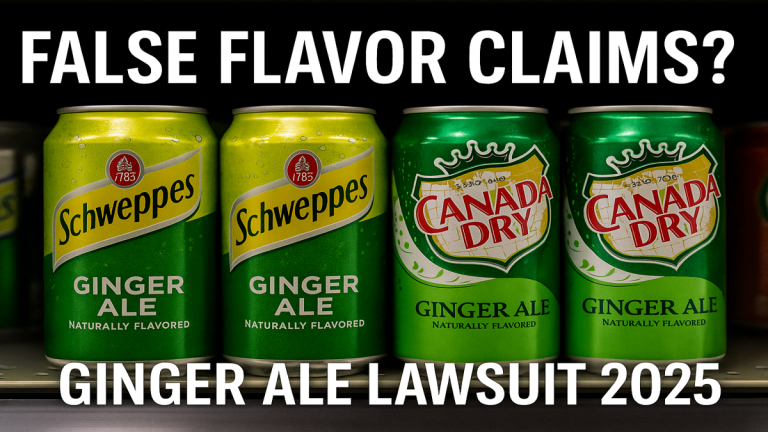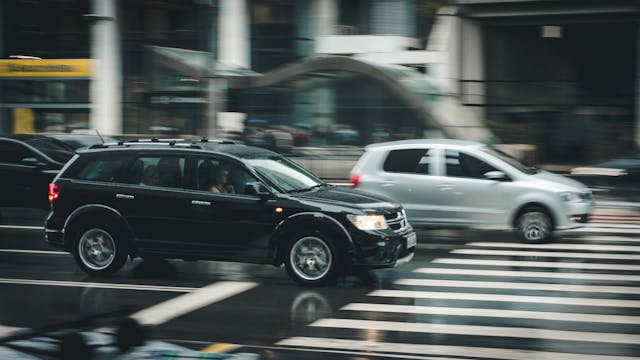Onewheel injury lawsuit cases are rising across the United States. The Onewheel, a self-balancing electric skateboard manufactured by Future Motion Inc., has taken the personal mobility market by storm. Riders love the sleek design and all-terrain fun. However, as exciting as they are, there are very concerning safety issues that have led to severe injury to riders and multiple lawsuits throughout the United States.
Riders have reported experiencing the following issues: unexpected nosedives, spontaneous power outages, and control failures. These failures have led to crashes that have caused traumatic brain injuries, spinal injuries, broken bones, and even death. The lawsuits filed against Future Motion allege the Onewheel is dangerously defective.
In this article, we will provide a complete overview of the Onewheel injury lawsuit, who can file a lawsuit, and what victims of this unbelievable boarding might recover. The first thing you need to do is know your rights if you are injured. If you are a victim or if your loved one has been injured, this article is meant to help you make informed decisions and take meaningful legal action.
What is the Onewheel Injury Lawsuit?
The Onewheel injury lawsuit is a legal action ongoing against Future Motion Inc. Victims and their families claim that the device is unsafe and improperly designed. There are documented instances of riders crashing due to intervention from the nosedive or an unexplained power failure during use. “Victims claim these events happen abruptly and without warning, resulting in catastrophic injuries, easily defined within a battery of laws.”
The legal claims generally fall under three categories:
Product Liability
Victims argue that Onewheel devices have design flaws. These include:
- Sudden shutdowns that cause riders to fall forward violently.
- Lack of safety mechanisms to prevent nosedives.
- Inadequate warnings about risks.
The lawsuits assert that the product is inherently dangerous and unfit for consumer use.
Negligence
Plaintiffs claim the company failed to test, update, or improve its product. Some lawsuits cite:
- Ignoring reports of recurring issues.
- Selling devices without adequate safety research.
- Delaying safety upgrades or recalls.
Failure to Warn
This claim accuses Future Motion of hiding known dangers. Riders say they were unaware of the real risks. Some marketing materials may have minimized the potential for harm.
Together, these lawsuits aim to secure justice for injury victims. They also aim to hold the company accountable for unsafe practices.
What Injuries Are Linked to Onewheel Accidents?
Onewheel accidents can lead to a wide range of severe injuries. The sudden and forceful nature of the falls makes these injuries especially dangerous.
Traumatic Brain Injuries (TBI)
Riders often fall headfirst. Even with a helmet, impact can cause severe brain trauma. Symptoms include:
- Memory loss
- Difficulty concentrating
- Seizures or confusion
- Long-term cognitive impairment
TBIs require extensive treatment. Victims often need rehabilitation, medication, and cognitive therapy.
Spinal Cord Injuries
Crashes from nosedives may damage the spine. Common consequences include:
- Herniated discs
- Partial or complete paralysis
- Loss of sensation or movement
- Ongoing nerve pain
Recovery can take years or may never be complete. These injuries often result in permanent disability.
Broken Bones
Onewheel crashes frequently cause bone fractures, especially in the arms and shoulders. These injuries include:
- Wrist fractures from bracing a fall
- Clavicle or collarbone breaks
- Leg and rib fractures
Severe cases need surgery, metal implants, and physical therapy. Healing time varies from weeks to months.
Internal Bleeding and Organ Damage
High-speed crashes may cause damage to the body. This includes:
- Bruised lungs or liver
- Internal bleeding from impact trauma
- Emergency surgery or hospitalization
These injuries can be fatal if not treated immediately.
Facial and Dental Trauma
Face-first falls may cause permanent damage. Victims often report:
- Broken jaws or nose
- Damaged teeth and gums
- Eye socket fractures
Plastic surgery or reconstruction may be necessary.
Who Can File a OneWheel Lawsuit?
Many victims qualify to file lawsuits, even if they didn’t buy the board themselves. Eligibility depends on a few key conditions.
Injury Occurred During Normal Use
The accident must have happened while using the Onewheel in a way that aligns with its intended function. Recreational riding, commuting, or using designated paths usually qualifies.
Sudden Malfunction or Defect
You must show that the board caused a loss of control, nosedive, or shutdown. This strengthens the product liability claim.
Medical Documentation
Medical records showing the injuries and their treatment are crucial. These prove that the device caused physical harm.
Lost Wages or Lifestyle Changes
You must demonstrate that the injury affected your income or daily life. Missed work, loss of job, or disability counts.
Wrongful Death Cases
Family members of deceased riders can file lawsuits. These are wrongful death claims. Compensation may include funeral costs and future earnings.
What Compensation Can Victims Receive?
Lawsuits may lead to settlements or court awards. The amount depends on the severity and long-term impact of the injury.
| Damage Type | Possible Compensation |
|---|---|
| Medical Bills | Hospital visits, surgery, rehab, medications |
| Lost Income | Missed work, reduced future earning ability |
| Pain and Suffering | Emotional distress, physical discomfort |
| Property Damage | Cost of the destroyed board or gear |
| Punitive Damages | Additional penalties to punish wrongdoing |
| Wrongful Death Awards | Funeral, loss of companionship, lost income |
Each case is unique. Severe injury or death usually brings higher compensation. Legal teams help estimate full damages.
Are There Ongoing Lawsuits or Recalls?
As of 2025, many lawsuits are currently active. The U.S. Consumer Product Safety Commission (CPSC) issued a strong safety alert in late 2023. The alert warned against using Onewheel boards due to the risk of crashes.
Recall Information
Following pressure, Future Motion recalled several Onewheel models. The recall applied to products sold between 2014 and 2023. Affected units experienced software issues that could result in power loss during mid-ride.
Legal Developments
Dozens of individual lawsuits have been filed. Some are being grouped as mass torts. This helps streamline the court process and improves efficiency. More riders are coming forward as awareness of the issue grows.
Future lawsuits are expected. Legal experts predict more claims will arise as investigations uncover deeper product flaws.
What Should You Do After an Onewheel Injury?
Take immediate action after an accident. Protecting your legal rights starts from day one.
Step 1: Seek Medical Attention
Get evaluated, even if injuries seem minor. Some symptoms appear later. Timely treatment builds strong medical records.
Step 2: Preserve the Onewheel
Do not dispose of the device. Please keep it in its post-accident condition. It may be used as evidence.
Step 3: Document the Scene
Take clear photos of:
- Your injuries
- Accident location
- Protective gear worn
This helps reconstruct what happened.
Step 4: Gather Witness Information
Get the names and contact details of anyone who saw the crash. Eyewitness testimony supports your case.
Step 5: Avoid Social Media Posts
Do not share accident details online. Insurers may use posts against you in court.
Step 6: Contact a Product Liability Lawyer
Choose an attorney experienced in Onewheel or electric rideable cases. They help you file your claim within the legal deadline.
Conclusion
The Onewheel injury lawsuit is more than just a legal claim—it’s a movement toward rider safety, corporate accountability, and compensation for victims. As the number of injuries continues to rise, courts are taking these cases seriously. Victims of sudden nosedives or device failures deserve justice.
If you or someone you love was harmed by an Onewheel, act fast. Medical care, legal help, and documentation are key. Do not settle without understanding your rights. You may be entitled to significant compensation.
Let the law work for you. A strong case can not only help you recover financially but also prevent future accidents. Holding companies accountable saves lives.




